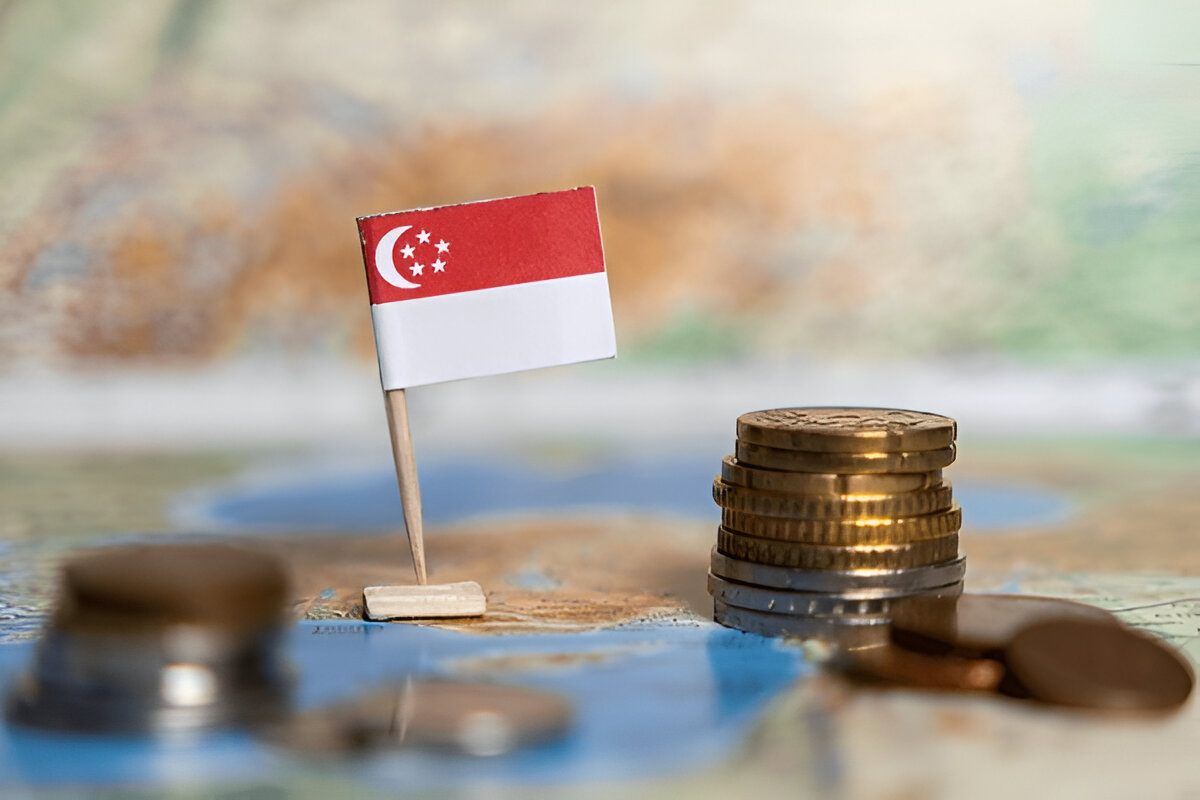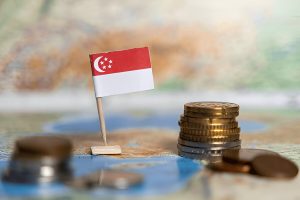Eligibility Criteria for the MRA Grant in Singapore: Who Qualifies and How to Apply
Expanding into international markets is a significant milestone for any business. Recognizing this, the Singapore government, through Enterprise Singapore, offers the MRA Grant in Singapore to support Small and Medium Enterprises (SMEs) in their overseas expansion endeavors. This article provides a comprehensive overview of the MRA Grant in Singapore, detailing its eligibility criteria, supported activities, funding structure, and the application process.
What is the MRA Grant?
The MRA Grant is designed to assist Singapore-based SMEs in venturing into new overseas markets. It aims to alleviate the costs associated with market promotion, business development, and market setup in foreign countries. By providing financial support, the grant enables SMEs to explore and establish a presence in international markets, thereby fostering growth and competitiveness.
Eligibility Criteria
To qualify for the MRA Grant, companies must meet the following criteria:
1. Business Registration and Operations
- Registered Entity: The company must be registered and operating in Singapore.
2. Shareholding Requirements
- Local Equity: At least 30% of the company’s equity must be held directly or indirectly by Singaporean(s) and/or Singapore Permanent Resident(s), determined by the ultimate individual ownership.
3. New Market Entry
- Target Market: The company must be entering a new overseas market where its annual sales have not exceeded S$100,000 in each of the preceding three years.
4. Financial Criteria
- Group Annual Sales Turnover: The company’s group annual sales turnover must not exceed S$100 million.
- Group Employment Size: Alternatively, the company can qualify if its group employment size does not exceed 200 employees.
5. Project Viability
- Financial Viability: The company must be financially viable to undertake and complete the proposed overseas expansion project.
6. Non-Eligibility
- Retrospective Applications: Applications for projects that have already commenced, payments made, or contracts signed with consultants/vendors before the application submission are not permitted.
Supported Activities and Funding Structure
The MRA Grant provides funding for activities under three main categories:
1. Overseas Market Promotion (Capped at S$20,000)
- Eligible Activities: Marketing and public relations activities, participation in trade fairs, and online marketing campaigns.
- Objective: To enhance brand visibility and awareness in the target overseas market.
2. Overseas Business Development (Capped at S$50,000)
- Eligible Activities: Business matching, identifying potential partners, and establishing business networks in the target market.
- Objective: To facilitate business development and establish connections with local partners.
3. Overseas Market Setup (Capped at S$30,000)
- Eligible Activities: Market research, legal and tax advisory, and setting up a physical presence in the target market.
- Objective: To support the establishment of operations and compliance in the new market.
Funding Cap: The total funding support is capped at S$100,000 per company per new market, covering up to 50% of eligible costs.
Application Process
Step 1: Prepare Required Documents
Before applying, ensure you have the following:
- Project Proposal: A detailed plan outlining the objectives, activities, timeline, and expected outcomes of the overseas expansion project.
- Cost Quotation: Obtain quotations from third-party vendors for the services to be rendered under the supported activities.
- Financial Statements: Provide the latest audited financial statements to demonstrate the company’s financial health.
Step 2: Submit Application
Applications must be submitted through the Business Grants Portal (BGP). Ensure that:
- Application Timing: Applications are submitted no earlier than six months before the project start date.
- Single Activity: Each application pertains to one activity in a single overseas market.
Step 3: Await Approval
Enterprise Singapore will assess the application based on:
- Project Scope and Outcomes: The clarity and feasibility of the proposed activities and expected results.
- Competency of Service Provider: The qualifications and experience of the third-party vendors involved.
Upon approval, an Offer Letter will be issued, detailing the terms and conditions of the grant.
Step 4: Project Execution
- Commencement: Begin the project only after receiving the Offer Letter.
- Documentation: Maintain records of all activities, expenditures, and communications related to the project.
Step 5: Claim Reimbursement
After project completion:
- Submit Claims: Provide proof of payment and completion for the eligible activities.
- Reimbursement: Enterprise Singapore will process the reimbursement based on the approved funding structure.
Important Considerations
- Project Duration: Each project must be completed within 12 months from the date of the Offer Letter.
- Retrospective Applications: As mentioned, applications for projects that have already commenced are not eligible.
- Group Applications: Applications involving multiple companies under a single submission are not permitted.
- SkillsFuture Enterprise Credit (SFEC): Eligible employers may qualify for additional subsidies under the SFEC scheme.
Who Qualifies for the MRA Grant?
- Singapore-based SME
The applicant must be a small or medium enterprise based and registered in Singapore. The definition of an SME includes:
- Annual sales turnover not exceeding S$100 million, or
- Employment size not exceeding 200 workers
- Singaporean Ownership
- The company must have at least 30% local shareholding, either directly or indirectly by Singapore citizens or Singapore Permanent Residents.
- Ownership is determined by tracing the ultimate individual ownership to ensure Singaporean control.
- New Market Entry
- The target overseas market must be new to the company, meaning annual sales to that market did not exceed S$100,000 in each of the last three years.
- The MRA Grant supports only market entry and expansion in new markets and is not meant for deepening presence in existing markets.
- Financial Viability
- The company must be financially viable to carry out the project.
- Submission of latest financial statements is required to demonstrate financial health.
- No Prior Project Commencement
- The project must not have started before the application is submitted.
- Any payments, contracts, or commencement of services prior to approval will disqualify the application.
What Activities Does the MRA Grant Support?
The MRA Grant funds activities in three main categories, each with specific caps:
- Overseas Market Promotion (Up to S$20,000)
- Trade fairs and exhibitions: Booth rental, participation fees
- Marketing campaigns: Digital marketing, advertising, promotional events
- Branding and communications: Public relations, media outreach in the target market
- Overseas Business Development (Up to S$50,000)
- Hiring of Business Development Manager: Recruitment of one business development manager based in the new market to support business development efforts
- Rental Support: Rental expenses for up to one year in the new market to support initial business operations
- Business matching services: Finding distributors, partners, or agents
- Setting up overseas networks: Meetings with potential clients or partners
- Consultancy services: Business development strategy for market entry
- Overseas Market Setup (Up to S$30,000)
- Incorporation of Company in the New Market: Expenses related to registering a legal entity overseas to facilitate market entry.
- Legal and tax advisory: Understanding compliance and tax structures
- Market research: Feasibility studies, competitive analysis
- Regulatory approvals: Licensing and certification costs
- Physical setup: Lease deposit or initial office setup costs (subject to eligibility)
How to Apply for the MRA Grant
Step 1: Prepare Your Application
- Develop a detailed project proposal outlining objectives, market choice, activities, timelines, and expected outcomes.
- Gather vendor quotations for all services or activities to be funded.
- Compile the company’s latest audited financial statements.
- Identify the overseas market and justify why it is a new market.
Step 2: Submit Your Application
- Applications are submitted online via the Business Grants Portal (BGP).
- Choose the appropriate overseas market and activity type.
- Ensure the application is submitted at least 6 months before project commencement, but not more than 6 months in advance.
Step 3: Await Assessment and Approval
- Enterprise Singapore reviews applications based on project merit, financial viability, and vendor credentials.
- Successful applications receive an Offer Letter specifying the grant amount, approved activities, and funding conditions.
Step 4: Commence the Project
- Start the project only after receiving the Offer Letter.
- Keep comprehensive records and proof of all expenditures and project activities.
Step 5: Submit Claims and Reports
- Upon project completion, submit reimbursement claims through the Business Grants Portal.
- Provide supporting documents such as invoices, proof of payment, and activity reports.
- Claims must be made within 3 months after project completion.
How MRA Fits Into Singapore’s SME Internationalization Grant Ecosystem
The MRA Grant is one among several government support schemes designed to help SMEs grow internationally. Understanding how it complements other grants can optimize your growth strategy.
- Enterprise Development Grant (EDG): Supports business transformation and scaling, including overseas market development beyond initial entry.
- Productivity Solutions Grant (PSG): Supports adoption of tech solutions that can improve efficiency, including some related to overseas operations.
- SkillsFuture Enterprise Credit (SFEC): Offers additional funding support for workforce training and capability building, which can complement overseas expansion efforts.
Businesses can combine these grants strategically—for example, use MRA for market entry research and initial setup, then EDG for scaling overseas operations.
Post-Grant Compliance and Monitoring
After receiving the MRA Grant, companies must:
- Complete the Project Within 12 Months: Extensions are rare, so plan your timelines carefully.
- Maintain Documentation: Keep all invoices, receipts, contracts, and proof of payments for at least 5 years.
- Submit Progress and Final Reports: Some projects may require interim reporting or final outcome reports to Enterprise Singapore.
- Allow Audits and Site Visits: Enterprise Singapore may conduct audits or request clarification on project execution.
Aligning MRA Grant Usage with Long-Term Business Goals
To fully benefit from the MRA Grant, companies should align their grant-supported activities with broader business objectives:
- Strategic Market Selection: Choose markets aligned with your product strengths and growth potential.
- Capability Building: Use the grant to acquire skills and knowledge essential for sustained international operations.
- Brand Building: Prioritize activities that build brand equity and customer loyalty overseas.
- Sustainability: Incorporate sustainability practices in overseas operations to meet growing consumer and regulatory expectations.
- Scalability: Focus on establishing scalable business models that can grow with minimal additional investment.
Final Advice: Navigating the MRA Journey
The MRA Grant is not just a funding mechanism; it’s a catalyst for transforming your company into a global player. Companies should:
- Engage key stakeholders early, including management, finance, and operations teams.
- Seek advice from Enterprise Singapore officers or accredited consultants.
- Monitor project progress closely and maintain transparent communication with service providers.
- Document lessons learned to improve future overseas expansion projects.
Digital Transformation and Internationalization
The digital economy has drastically reshaped how companies expand internationally. The COVID-19 pandemic accelerated digital adoption, making digital channels often the first touchpoint for overseas customers.
E-Commerce Platforms
SMEs can use the MRA Grant to:
- Develop or enhance e-commerce platforms localized for overseas markets.
- Integrate payment gateways supporting local currencies and payment methods.
- Launch targeted online marketing campaigns on platforms popular in the target country (e.g., WeChat in China, Shopee in Southeast Asia).
Data Analytics and Customer Insights
Leveraging data analytics helps SMEs understand customer behavior and market trends in real-time, enabling agile decision-making. Funds from the MRA Grant in Singapore can be allocated to purchase analytics tools or hire data experts to gain insights that refine marketing and product strategies..
Cybersecurity and Compliance
Digital expansion increases exposure to cyber threats and regulatory requirements on data protection (such as GDPR in Europe). Investing in cybersecurity consulting and compliance advisory using the grant helps protect the company and build customer trust.
Additional Practical Tips for Utilizing the MRA Grant
- Prioritize High-Impact Activities
Focus your grant-funded efforts on activities that deliver measurable results, such as securing key distributors or achieving regulatory approval. Avoid spreading funds too thinly on less impactful tasks.
- Combine with Other Government Schemes
Many SMEs miss opportunities by not bundling grants. For example, use the MRA for market entry activities, the Enterprise Development Grant (EDG) for business transformation, and SkillsFuture Enterprise Credit (SFEC) for workforce training related to overseas operations.
- Document All Project Activities Meticulously
Proper documentation streamlines claims processing and reduces risks during audits. Keep detailed records of invoices, contracts, meeting minutes, and progress reports.
- Stay Informed on Changes
Grant schemes evolve; stay updated through Enterprise Singapore’s newsletters, workshops, and official portals to ensure compliance and access new opportunities.
Conclusion
The MRA Grant Enterprise Singapore serves as a valuable resource for Singaporean SMEs aiming to expand into new overseas markets. By understanding the eligibility criteria, supported activities, and application process, companies participating in the Think SME initiative can effectively leverage this grant to facilitate their internationalization efforts. For detailed information and to apply, visit the official Enterprise Singapore website.
Read more:








